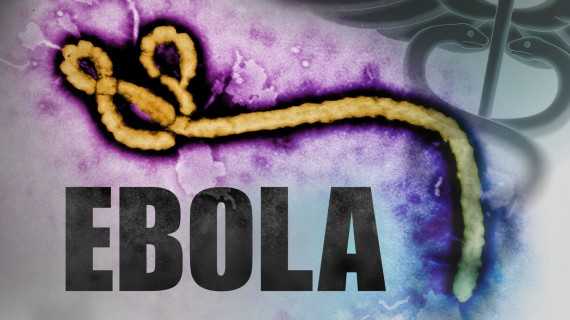Ebola Outbreak In Central Africa May Mark First Test Of New Vaccine
There appears to be what for now is a minor outbreak of Ebola in the Democratic Republic of Congo, and public health officials are on alert:
The number of suspected cases of Ebola has risen to 29 from nine in less than a week in an isolated part of Democratic Republic of Congo, where three people have died from the disease since April 22, the World Health Organization said on Thursday.
The W.H.O. was criticized for responding too slowly to an outbreak in West Africa in 2014 that left more than 11,000 people dead, and Dr. Peter Salama, the executive director of the organization’s health emergencies program, said at a briefing that it was essential to “never, ever underestimate Ebola” and to “make sure we have a no-regrets approach to this outbreak.”
The risk from the outbreak is “high at the national level,” the W.H.O. said, because the disease was so severe and was spreading in a remote area in northeastern Congo with “suboptimal surveillance” and limited access to health care.
“Risk at the regional level is moderate due to the proximity of international borders and the recent influx of refugees from Central African Republic,” the organization said, but it nonetheless described the global risk as low because the area is so remote.
About a week ago, in addition to the nine suspected cases, 125 patients who had come into close contact with the disease were being monitored. Now about 400 patients are being followed, even as nine new cases were reported on Thursday, according to the W.H.O.
The Ebola virus causes fever, bleeding, vomiting and diarrhea, and it spreads easily by contact with bodily fluids. The death rate is high, often surpassing 50 percent, particularly with the Zaire strain, which has been confirmed in two cases in this outbreak.
The outbreak was reported in a densely forested part of Bas-Uele Province, near the border with the Central African Republic. Cases have occurred in four separate parts of a region called the Likati health zone.
Aid groups and the W.H.O. have struggled to reach the affected area, which has no paved roads.
The first known case occurred on April 22, when a 39-year-old man who had fever, vomiting, diarrhea and bleeding died on the way to a hospital in the Likati zone. The person caring for him and a motorcyclist who transported him also died.
The first six months of the response to the outbreak are expected to cost the W.H.O. and aid groups $10 million, Dr. Salama said at the briefing. He said telecommunications networks would have to be established and airstrips repaired so that aid workers can provide the necessary medical care.
The W.H.O., aid groups and the Congolese government are discussing the possibility of using an experimental Ebola vaccine, made by the American pharmaceutical company Merck, that proved effective in Guinea.
The response would involve a “ring vaccination,” in which contacts of patients, contacts of contacts, and health workers would be vaccinated. There would be no mass public vaccination.
The vaccine has not yet been licensed, and its use would require permission on several fronts. Nonetheless, Dr. Salama said that if permission were granted, the vaccine could be made available in a week or so. Other experimental antiviral drugs may also be considered.
The Ebola virus is considered endemic in the Democratic Republic of Congo, where eight outbreaks, the largest involving about 300 patients, have been recorded since 1976.
I wrote about the vaccine that the article quoted above back in December. As I noted at the time, testing indicated that it was ‘100% effective’, however, it’s worth noting that those tests were conducted under controlled scientific conditions and not in the field. If it is utilized n response to this outbreak, it would be the first time it would be tested in the wild and it’s unclear whether or not it would be effectively in containing the spread of the disease effectively enough to prevent the kind of outbreak that we saw in West Africa that eventually spread to include isolated cases of Ebola in Europe and the United States. Given the dangers that another outbreak would create in Central Africa and the threat that could pose to public health around the world, though, it certainly seems like a risk worth taking. Hopefully, though, the vaccine, along with the other anti-viral treatments that have been developed since the last outbreak will be sufficient to stop another outbreak.
